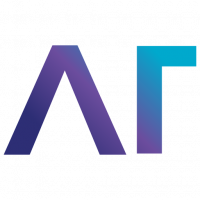Financial Services in dubai

Strong 8k brings an ultra-HD IPTV experience to your living room and your pocket.
Dubai has established itself as a major global hub for financial services, offering a wide range of banking, investment, and insurance services. Here’s an overview of the financial services sector in Dubai:
1. Banking Sector
Commercial Banks: Dubai is home to numerous local and international banks, providing services like retail banking, corporate banking, wealth management, and more. Major local banks include Emirates NBD, Dubai Islamic Bank, and Mashreq Bank. Many global banks, such as HSBC, Citibank, and Standard Chartered, also have a significant presence in Dubai.
Islamic Banking: Dubai is a leader in Islamic finance, offering Sharia-compliant banking services. Institutions like Dubai Islamic Bank and Emirates Islamic Bank play a key role in this sector.
2. Dubai International Financial Centre (DIFC)
Overview: DIFC is a leading financial free zone in Dubai, offering a favorable business environment with independent regulatory and legal systems based on international standards. It is home to a wide range of financial institutions, including banks, asset management firms, insurance companies, and law firms.
Regulation: The Dubai Financial Services Authority (DFSA) is the independent regulator overseeing the financial services conducted in the DIFC.
Specialized Services: The DIFC provides a platform for services such as investment banking, private banking, capital markets, and financial consulting.
3. Investment and Asset Management
Wealth Management: Dubai is a key player in global wealth management, attracting high-net-worth individuals (HNWIs) from around the world. The city's financial institutions offer services like portfolio management, investment advisory, and financial planning.
Private Equity and Venture Capital: Dubai has a growing private equity and venture capital scene, with firms actively investing in various sectors such as real estate, technology, and healthcare.
Sovereign Wealth Funds: The Emirate is home to some of the largest sovereign wealth funds, such as the Investment Corporation of Dubai and Mubadala, which manage and invest billions globally.
4. Insurance and Reinsurance
Local and International Insurers: Dubai’s insurance market is diverse, with both local companies like Oman Insurance and global players like AXA offering a wide range of products, including life, health, property, and liability insurance.
Reinsurance Hub: The city is also emerging as a reinsurance hub, with firms setting up operations in DIFC to serve the broader Middle East, Africa, and South Asia (MEASA) region.
5. Capital Markets
Stock Exchange: The Dubai Financial Market (DFM) and Nasdaq Dubai are the primary stock exchanges in the city, facilitating the trading of equities, bonds, and other securities.
Bonds and Sukuk: Dubai is a leading center for the issuance and trading of Sukuk (Islamic bonds), with many local and international entities raising capital through these instruments.
6. Fintech and Innovation
Growing Fintech Ecosystem: Dubai is rapidly becoming a fintech hub, supported by initiatives from the government and the private sector. The DIFC FinTech Hive is a leading accelerator program that supports fintech startups in areas like blockchain, payments, and digital banking.
Digital Banking: The city has seen the emergence of digital banks and payment platforms, providing innovative financial solutions to consumers and businesses alike.
7. Regulatory Environment
Central Bank of the UAE: The Central Bank regulates monetary policy, supervises banks, and ensures financial stability across the UAE, including Dubai.
Dubai Financial Services Authority (DFSA): As mentioned earlier, the DFSA is responsible for regulating the financial services within the DIFC, ensuring adherence to international standards.
8. Economic Growth and Vision
Dubai’s Vision 2021 and Beyond: Dubai’s strategic vision includes positioning itself as one of the world’s top financial centers. Initiatives like Dubai Plan 2021 and Dubai 10X aim to enhance the city's competitiveness in the financial services sector, leveraging technology and innovation.
Conclusion
Dubai’s financial services sector is a cornerstone of its economy, attracting businesses and investors from around the world. With a robust regulatory framework, a strategic geographic location, and a focus on innovation, Dubai is poised to continue its growth as a leading global financial hub.
Dubai has established itself as a major global hub for financial services, offering a wide range of banking, investment, and insurance services. Here’s an overview of the financial services sector in Dubai:
1. Banking Sector
Commercial Banks: Dubai is home to numerous local and international banks, providing services like retail banking, corporate banking, wealth management, and more. Major local banks include Emirates NBD, Dubai Islamic Bank, and Mashreq Bank. Many global banks, such as HSBC, Citibank, and Standard Chartered, also have a significant presence in Dubai.
Islamic Banking: Dubai is a leader in Islamic finance, offering Sharia-compliant banking services. Institutions like Dubai Islamic Bank and Emirates Islamic Bank play a key role in this sector.
2. Dubai International Financial Centre (DIFC)
Overview: DIFC is a leading financial free zone in Dubai, offering a favorable business environment with independent regulatory and legal systems based on international standards. It is home to a wide range of financial institutions, including banks, asset management firms, insurance companies, and law firms.
Regulation: The Dubai Financial Services Authority (DFSA) is the independent regulator overseeing the financial services conducted in the DIFC.
Specialized Services: The DIFC provides a platform for services such as investment banking, private banking, capital markets, and financial consulting.
3. Investment and Asset Management
Wealth Management: Dubai is a key player in global wealth management, attracting high-net-worth individuals (HNWIs) from around the world. The city's financial institutions offer services like portfolio management, investment advisory, and financial planning.
Private Equity and Venture Capital: Dubai has a growing private equity and venture capital scene, with firms actively investing in various sectors such as real estate, technology, and healthcare.
Sovereign Wealth Funds: The Emirate is home to some of the largest sovereign wealth funds, such as the Investment Corporation of Dubai and Mubadala, which manage and invest billions globally.
4. Insurance and Reinsurance
Local and International Insurers: Dubai’s insurance market is diverse, with both local companies like Oman Insurance and global players like AXA offering a wide range of products, including life, health, property, and liability insurance.
Reinsurance Hub: The city is also emerging as a reinsurance hub, with firms setting up operations in DIFC to serve the broader Middle East, Africa, and South Asia (MEASA) region.
5. Capital Markets
Stock Exchange: The Dubai Financial Market (DFM) and Nasdaq Dubai are the primary stock exchanges in the city, facilitating the trading of equities, bonds, and other securities.
Bonds and Sukuk: Dubai is a leading center for the issuance and trading of Sukuk (Islamic bonds), with many local and international entities raising capital through these instruments.
6. Fintech and Innovation
Growing Fintech Ecosystem: Dubai is rapidly becoming a fintech hub, supported by initiatives from the government and the private sector. The DIFC FinTech Hive is a leading accelerator program that supports fintech startups in areas like blockchain, payments, and digital banking.
Digital Banking: The city has seen the emergence of digital banks and payment platforms, providing innovative financial solutions to consumers and businesses alike.
7. Regulatory Environment
Central Bank of the UAE: The Central Bank regulates monetary policy, supervises banks, and ensures financial stability across the UAE, including Dubai.
Dubai Financial Services Authority (DFSA): As mentioned earlier, the DFSA is responsible for regulating the financial services within the DIFC, ensuring adherence to international standards.
8. Economic Growth and Vision
Dubai’s Vision 2021 and Beyond: Dubai’s strategic vision includes positioning itself as one of the world’s top financial centers. Initiatives like Dubai Plan 2021 and Dubai 10X aim to enhance the city's competitiveness in the financial services sector, leveraging technology and innovation.
Conclusion
Dubai’s financial services sector is a cornerstone of its economy, attracting businesses and investors from around the world. With a robust regulatory framework, a strategic geographic location, and a focus on innovation, Dubai is poised to continue its growth as a leading global financial hub.
FAQ: Financial Services in Dubai
1. What is the role of Dubai in the global financial services industry?
Dubai is a major global hub for financial services, offering a wide range of banking, investment, insurance, and fintech services. It serves as a strategic gateway between the East and West, attracting businesses and investors from around the world.
2. What types of banks operate in Dubai?
Dubai hosts both local and international banks. Major local banks include Emirates NBD, Dubai Islamic Bank, and Mashreq Bank. International banks like HSBC, Citibank, and Standard Chartered also have a significant presence in the city.
3. What is the Dubai International Financial Centre (DIFC)?
The DIFC is a leading financial free zone in Dubai, offering a favorable business environment with an independent regulatory and legal system based on international standards. It is home to numerous financial institutions, including banks, asset management firms, and insurance companies.
4. How is the financial sector in DIFC regulated?
The Dubai Financial Services Authority (DFSA) is the independent regulator responsible for overseeing financial services conducted within the DIFC, ensuring they adhere to international standards.
5. What investment opportunities are available in Dubai?
Dubai offers various investment opportunities, including wealth management, private equity, venture capital, and sovereign wealth funds. The city is a key player in global wealth management, attracting high-net-worth individuals and firms.
6. What role does Dubai play in Islamic finance?
Dubai is a global leader in Islamic finance, offering Sharia-compliant banking and financial services. Institutions like Dubai Islamic Bank and Emirates Islamic Bank are key players in this sector.
7. What types of insurance services are available in Dubai?
Dubai’s insurance market is diverse, with both local and international insurers offering life, health, property, and liability insurance. The city is also emerging as a reinsurance hub for the broader Middle East, Africa, and South Asia (MEASA) region.
8. What are the key stock exchanges in Dubai?
The Dubai Financial Market (DFM) and Nasdaq Dubai are the primary stock exchanges in the city, where equities, bonds, and other securities are traded. Dubai is also a leading center for Sukuk (Islamic bonds) issuance and trading.
9. How is Dubai supporting fintech and innovation in financial services?
Dubai is rapidly becoming a fintech hub, with initiatives like the DIFC FinTech Hive supporting startups in areas like blockchain, payments, and digital banking. The city has seen the emergence of digital banks and payment platforms offering innovative financial solutions.
10. What is the regulatory framework for financial services in Dubai?
The Central Bank of the UAE regulates monetary policy, supervises banks, and ensures financial stability across the UAE, including Dubai. The Dubai Financial Services Authority (DFSA) specifically regulates financial services within the DIFC.
11. What are Dubai’s future plans for the financial services sector?
Dubai’s strategic vision, including initiatives like Dubai Plan 2021 and Dubai 10X, aims to position the city as one of the world’s top financial centers. These plans focus on enhancing competitiveness through technology and innovation.
12. Why is Dubai an attractive destination for financial services?
Dubai’s strategic geographic location, robust regulatory framework, and focus on innovation make it an attractive destination for businesses and investors in the financial services sector. The city offers a dynamic environment for both traditional and emerging financial services.
Note: IndiBlogHub features both user-submitted and editorial content. We do not verify third-party contributions. Read our Disclaimer and Privacy Policyfor details.


